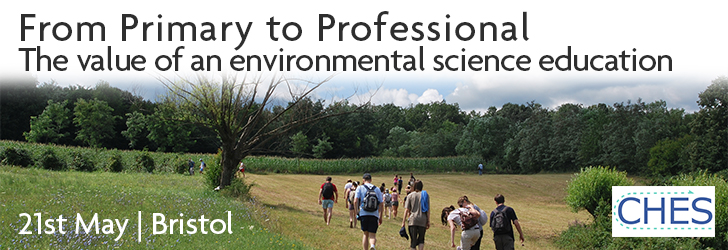Join us as we explore the value of an environmental science education.
What experience do students have of environmental science at each stage of their education, and how can we motivate the next generation to aspire to a career in the environment?
Our range of speakers will discuss students' journeys from primary education all the way through to their professions, analysing possible opportunities to increase engagement with this sector, and exploring how to increase diversity and inclusion within the sector.
As part of the day, alongside our speakers' presentations, we will be hosting a workshop dedicated to exploring employability issues within the sector in order to identify and dissect the problems recent graduates and young professionals are facing, with the hope of improving employability prospects.
Location: 5X101 Level 5 Business School, Frenchay Campus UWE, Bristol
View the programme
Our Speakers
|
The value of the Environmental Science A-Level
Richard Genn, Teacher at Peter Symonds College
Richard has been teaching A Level Environmental Science in 6th Form and FE colleges since 1980. He currently teaches at a large 6th Form college in Winchester, Hampshire. There have been many changes over the years, especially in our understanding of environmental problems, the involvement of humans and the solutions that can be implemented. Richard is the author of the textbook accredited by the exam board and was involved in producing the current syllabus. The emphasis is on the scientific approach to collecting reliable data and the methods that can be used to analyse and evaluate information to formulate strategies to solve environmental problems. Richard has also been an examiner since 1985.
With the assistance of students, colleagues and friends, Richard manages an 8-hectare area of neglected coppiced woodland, with the aim of increasing habitat diversity and wildlife value.
Richard helps coordinate the UK-based sustainable development charity ‘Kenya 20020’ that works with the community of Alara near Lake Victoria in Western Kenya.
|
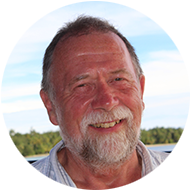 |
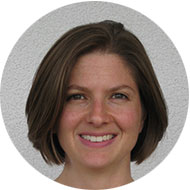 |
|
Embedding the UN Sustainable Development Goals into higher education
Dr Georgina Gough, Associate Professor in Education for Sustainable Development
Georgina Gough is education for sustainable development (ESD) lead for UWE Bristol. She coordinates a cross university knowledge exchange for sustainability education and supports academics to incorporate sustainability into their teaching, learning and professional practice. She works in partnership with colleagues, students and external stakeholders to embed sustainability across higher education and to share good practice both internally and externally. Georgina is programme leader for MSc Sustainable Development in Practice and teaches in geography- and business-based UG modules as well as contributing to cross-university sustainability modules and academic development initiatives. Georgina helps to lead work within UWE Bristol on the United Nations Sustainable development Goals (SDGs) and is actively involved in city-level work to achieve the SDGs. |
An alternative approach to postgraduate sustainable pedagogy
Adrian Watson, Head of Graduate School, Centre for Alternative Technology
Following work in industry and a PhD in Instrumentation from UMIST (now University of Manchester), Adrian Watson has been worked in environmental education since 1992. At Manchester Metropolitan University he taught and researched on various aspects of pollution, particularly indoor air pollution and health before moving into academic management. Over the last 10 years he has led a number of university academic divisions, overseeing a variety of pedagogical approaches to education from the social sciences of human geography, through ecology, physical geography and environmental science to the physical science approach of chemistry. In 2018 he moved to the Centre for Alternative Technology in Wales, an environmental charity which works towards achieving environmental sustainability through practical means, whilst recognising the need for behavioural change. There he heads the Graduate School, which is classsified as an alternative provider, and oversees the delivery and quality assurance of postgraduate courses in sustainability and architecture. |
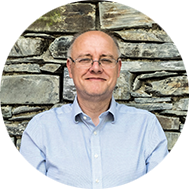 |
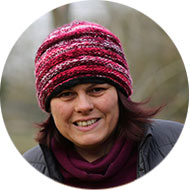 |
|
Forest School - Caring for ourselves, each other and nature
Sarah Lawfull, Director at Forest School Association
A childhood spent roaming the woods and fields of Devon, thirty years of teaching, youth work, Forest School and wider environmental training have all combined to provide Sarah with a rich understanding of the importance of nature for children. It has also taught her how much nature needs children. Sarah was involved with writing the newest iteration of the Forest School qualifications, on the RQF. She has worked with the Sylva Foundation to develop training for Forest School Leaders, developing a school friendly version of their online woodland management tool, myForest for Education.
She is passionate about involving children and young people in caring for their own piece of the planet, promoting biodiversity and putting down roots. Having a strong sense of belonging alongside empathy and responsibility is key to engaging children in caring for the environment. Forest School offers challenging, risky play and real life opportunities for conservation.
|
Forest School - Caring for ourselves, each other and nature
Jon Cree, Director at Forest School Association
Jon’s passion is reconnecting people of all ages to the natural world with a view to facilitating more compassionate relationships in communities. As Jon often likes to quote - the brain feels before it thinks and he feels this is key to building relationships. He has been involved with outdoor and environmental learning with groups of youngsters from 4 years to 26 for his last 40 years! His particular experience is with teenagers who are challenged by the education system, especially at Forest School.
Jon has been training educators from many different backgrounds in outdoor and nature based learning for at least 35 years (from whole school training programmes through to youth services, environmental NGO’s, local authorities and government agencies). He has been an earth education trainer with the international Institute for Earth Education since 1992 – having been involved in many earth education programmes at a number of centres in the UK and Europe. This brings to bear his deeper ecological understanding of how our planet operates ecologically.
Jon was the founding chair of the Forest School Association (FSA) UK and remains a director of the FSA.He loves nothing more than paddling down the rivers on the welsh borders with his family, whittling the odd spoon and baking his own bread over the fire!
|
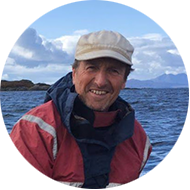 |
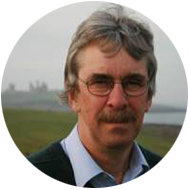 |
|
Curious about nature: a passion for fieldwork
Tim Burt, President of Field Studies Council
Tim Burt was Master of Hatfield College and Professor of Geography at Durham University from 1996 until 2017. He previously taught at Huddersfield Polytechnic and Oxford University. He is now an Emeritus Professor at Durham and Visiting Professor at Bristol University. An undergraduate at Cambridge, Tim has a Masters from Carleton and PhD and DSc from Bristol. He is the editor or author of 10 books with 200+ research papers listed on Web of Science. He is a Fellow of the American Geophysical Union and the British Society of Geomorphology; in 2017 he was awarded the Linton Medal by the BSG, its highest honour. Tim has been a trustee of the Field Studies Council since 1982; he was Chairman from 1996 to 2014 and has been President since then. He is joint editor (with Des Thompson) of the forthcoming book with the same title as today’s talk (to be published by CUP). |
Recognising the Value of Accessibility within Education and the Environmental Sciences
Piers Wilkinson, CEO at Ramping Up Ltd
Piers is a disabled representative, activist, and access consultant, who has worked with national and international organisations to promote disability inclusivity and disabled people’s rights. Currently Piers sits on the National Union of Students (NUS) National Executive Council, the Disabled Students’ Campaign, and NUS Sustainability Board, and during his time has contributed to the 2016 UNCRPD’s investigation into the UK, consulted for Friends of the Earth for disability inclusion on the a bill in the upcoming Environment Act, and collaborated with Disabled People Organisations to lobby for disabled people’s rights to inclusive education within the UK. Furthermore Piers is CEO and head consultant for Ramping Up Limited, an access consultancy firm. Additionally, he also consults for and works alongside sector leaders as a member of the All Party Parliamentary Group for Assistive Technology (APPG-AT). All whilst studying an MSci in Physical Oceanography at Bangor University.
|
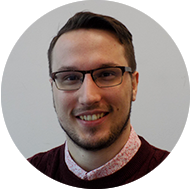 |
 |
|
Engaging visible minority ethnic young people with nature
Mya-Rose Craig, AKA Birdgirl
Mya-Rose Craig is a 16-year-old young British Bangladeshi birder, conservationist and environmentalist, writing the Birdgirl blog about her passion for birds and conservation worldwide. At just 12 years old she was a Bristol European Green Capital 2015 Ambassador alongside Tony Juniper and Miranda Krestovnikoff and was listed with George Ezra and Maisie Williams as one of Bristol's most influential young people.
She has organised five nature camps for Visible Minority Ethnic young people since 2015, with four more in 2019. She has given over 50 talks, speaking at conferences and panels such as with George Monbiot and Caroline Lucas talking about making the environmental sector ethnically diverse. She also organised her own conference, Race Equality in Nature, in 2016 and two more in 2019. She was a Minister in Chris Packham's 2018 Manifesto for Wildlife, spoke at his walk for Wildlife in Hyde Park and was listed in Bristol's 2019 BME top 100 powerlist.
|
Achieving race equality in nature
Helena Craig, Chair of Black2Nature
Helena Craig is a British Bangladeshi birder and conservationist, obsessed with watching them worldwide and saving them. She is Chair of Black2Nature, which aims to give Visible Minority Ethnic (VME) people access to nature by making the sector ethnically diverse and relevant to those communities.
She is a retired partner of a Bristol solicitors’ firm and describes the dominance of White British men at the top of the law and the conservation sectors as being similar.
She has been campaigning to stop racism and promote equality since she was a 14 year old living in inner city Bristol within the framework of attending a white racist school, the St Paul’s riot, and being involved in the anti-apartheid movement.
She was able to increase diversity in her legal department from 0.5% to 30% VME with action that could be applied in conservation organisations, including setting up a focussed trainee scheme.
|
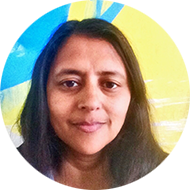 |
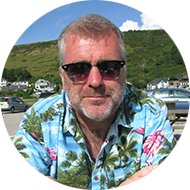 |
|
Workshop - Employability in the environmental science sector: Perspectives and needs
Dr Pete Shaw, Associate Professor in Environmental Science
Pete is an Associate Professor at the University of Southampton, specialising in interdisciplinary environmental science. He has a diverse background, holding degrees in Physics, Environmental and Ecological Sciences, and Biology. Since 1997, he has taught at various levels of study in Higher Education and across a wide range of subjects. As a long-standing member of the CHES executive, he leads the employability portfolio, through which he aims to enhance the employability of graduates in environmental disciplines and, through identification and dissemination of good practice, enhance efforts to support students’ employability across UK HE institutions.
|
A student perspective on employability: What I learnt and what I wish I was taught
George Bethell, BSc Geography Student, UWE
George is a final year student studying physical geography at the University of the West of England, soon to be graduating with an aim of finding employment within the environmental science sector. He recently submitted his dissertation which investigated the influences of geology and soil type on river hydrology. As well as study for his undergraduate degree, George undertook an industrial placement last year where he was employed as an educational ranger at an outdoor education centre. During this role he ran sessions teaching children aged 7-12yrs about the environment whilst building their team-working skills and independence.
|
 people access to nature by making the sector ethnically diverse and relevant to those communities. She is a retired partner of a Bristol solicitors’ firm and describes the dominance of White British men at the top of the law and the conservation sectors as being similar. She has been campaigning to stop racism and promote equality since she was a 14 year old living in inner city Bristol within the framework of attending a white racist school, the St Paul’s riot, and being involved in the anti-apartheid movement. She was able to increase diversity in her legal department from 0.5% to 30% VME with action that could be applied in conservation organisations, including setting up a focussed trainee scheme. ) 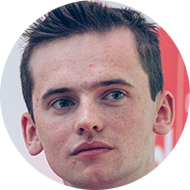 |
Ticket prices
CHES institutional members and IES professional members (Associate and Full) are eligible for the CHES member discounted ticket price. Members of institutions who do not hold CHES membership are eligible for the standard ticket fee.
| CHES member |
£60 |
| Standard |
£85 |

Thinking about accreditation?
A free accreditation workshop will be held the evening before the event on the 20th May from 18:30. Whether you're thinking about accrediting new programmes, looking to re-accredit revised programmes, or applying for CHES membership, members of the Executive Committee will be on hand to support you with your applications.
This workshop will be held at the Bristologist from 18:30-20:30 and operate as a drop-in session for you to discuss your accreditation application with members of the CHES Executive committee. This workshop is free, simply sign up through the booking form and we will be on hand to answer your questions.
Transport
The closest train station to the conference site is Bristol Parkway, with buses running frequently between the station and the university. The North Entrance to the campus is the most convenient if arriving by train or bus. Bristol Parkway is a 10-minute taxi ride.
If you are planning on driving to the site, there is already parking booked. Please head to the car park directly infront of X Block using the North Entrance. SatNav postcode for this block is BS34 8QZ.
For information on how best to access the University of the West of England, click here.
Accessibility
We aim to provide events, conferences and workshops which are accessible to all. If you anticipate needing any type of assistance to fully participate in this event, please email Rhiannon Humphreys at rhiannon@the-ies.org or call +44 (0)20 3862 7484 to discuss this further.












